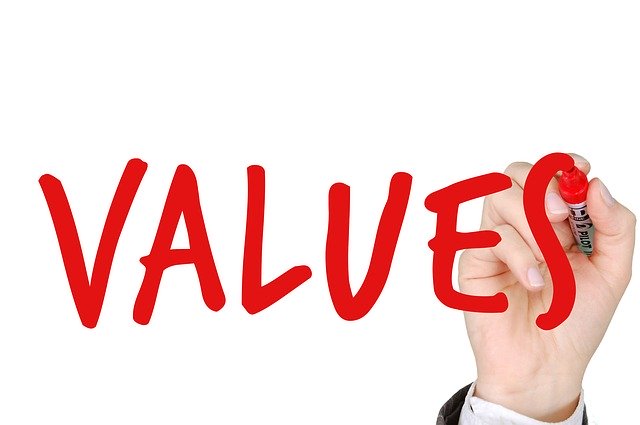by Nathan Chua
Have you ever felt like an outcast where people seem to have their morals in place and you have not? Do you sometimes feel like a misfit in a deeply religious group? Everyone around you seems sure of what is judged to be right or wrong, good or bad, and you are left out not knowing why you feel restless about such strongly held beliefs.
The good news is, you are not alone. How many of us have felt like we held certain values that go against what is commonly accepted as correct and acceptable to the culture and society? Many!
The key here lies in how we understand the terms that we use. We often think that there must be something wrong with our values since they don’t jibe with what is held out to be correct by society. I am not saying that I have the official definition of the terms I will be using here. This post is only a means to help you, my dear readers, find a place of comfort where your values can find legitimacy no matter how outlandish you think they might be.
Let me use a couple of terms that a foremost expert in Acceptance and Commitment Therapy uses to distinguish two words that are normally taken to mean the same: values and virtues.
A value is something that can be summed up in one word. If it needs to be said in more than just one word, then it turns into a rule or a virtue as we are using it here. One can hold being loving, caring, compassionate, accepting, assertive, etc as a value. Once it turns into, “I have to be loving all the time,” then it becomes a rule. Values are meant to be held lightly and as a kind of being in every moment, but nonetheless, can be pursued determinedly.
Here’s a metaphor to give you an idea what a value is. If you ever liked mountain climbing, you would know that your goal of reaching the top is separate from the process of reaching it. You climb a mountain with the goal of reaching the top, but the goal is not just about reaching the top but to experience the process of reaching the top. In other words, you may or may not reach the top, as mountain climbing can be a rather risky activity, but it doesn’t matter as much as simply climbing the mountain. If you hold on too much to the goal of reaching the top to gain a sense of accomplishment or belonging, then you lose the value of experiencing the journey itself or the activity of mountain climbing.
Virtues on the other hand, sound more like goals or rules to follow. Again, I am not talking here about a dictionary definition. This is about distinguishing two ideas to help us understand how values-directed and virtues-directed living can be distinguished from one another. Virtues have a sense of conformity in them. It can come in the form of a statement like, “I should be nice, otherwise people won’t like me.”
So here is how it works in our daily experiences, a value may not be accepted as a virtue in certain cultures. For example, you may have the value of being assertive, but the culture may not see that as a virtue. You and I can run into some conflicts with these types of long-held beliefs about what is acceptable or not.
I am quite sure that you have been in some rather difficult situations before wherein you had this feeling that you were doing right by your own conscience, but seem to be unwelcomed by many. Fear not! Anything that we hold as important will come with the pain of not finding it manifested in our own lives as well as the others around us or in the larger community even. If we care about equality of opportunity, we will find pain in seeing ourselves and others that are not given such opportunities. When we care about life, we will find death fearful. When we care about friendships, we will feel anxious and awkward in social situations. When we care about people who have disabilities, we will care about accessibility of public places.
So take heart my friends! For anything that grieves you from the pain of past experiences, you will find something beautiful inside you that you may have failed to see. You may care about the rights of oppressed groups because a part of your history tells you that there is a person there behind your eyeballs that saw that oppression in the past! For any kind of past sufferings you have experienced, you will find a gift. And that gift may very well be love, which in the end sums up much, or even all of what we’d like to live for anyway.

